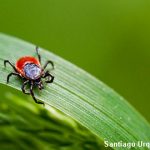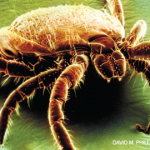The team was unable to determine the ecological factors influencing the colonization of Ixodes scapularis in specific areas. “We know that other ecological factors, such as the density and composition of the understory, the depth of litter layer and the type of forest create favorable habitat for [Ixodes] scapularis,” write the authors in their discussion. “Examination of these factors at a finer spatial scale may be needed to understand the colonization process as the microclimate and microhabitat have a significant impact on the tick.”
In particular, the authors suggest that ongoing field sampling should be focused on eastern Ontario, which is a hot spot for the Ixodes scapularis.
Lara C. Pullen, PhD, is a medical writer based in the Chicago area.
Reference
- Clow KM, Leighton PA, Ogden NH, et al. Northward range expansion of Ixodes scapularis evident over a short timescale in Ontario, Canada. PLoS One. 2017 Dec 27;12(12):e0189393. doi: 10.1371/journal.pone.0189393. eCollection 2017.


